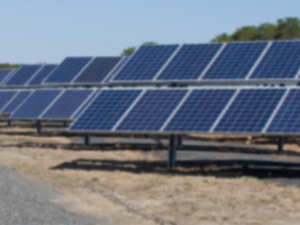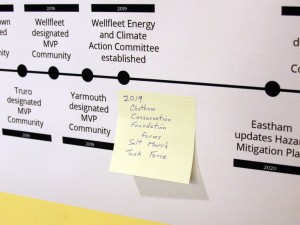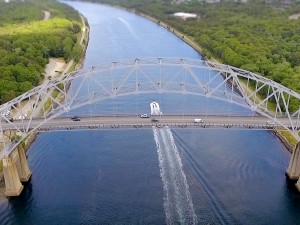Overview
Cape Cod Commission staff has developed a solar screening tool that will help guide large-scale solar photovoltaic projects toward appropriate areas and away from important conservation areas. The tool considers both built and natural environments to identify areas more or less appropriate for solar development. It is designed for use by anyone interested in developing or reviewing large-scale solar facilities.
Climate change is a key challenge facing Cape Cod. It contributes to sea level rise, increased frequency and intensity of storms, and longer periods of warmer weather. Greenhouse gases (GHGs) contribute to climate change by trapping heat in the atmosphere and causing global temperatures to rise. Massachusetts has a goal to reduce GHG emissions from all sectors by at least 80% below a 1990 emissions baseline by 2050.
One way to reduce GHG emissions and slow the effects of climate change in the energy sector is to support the replacement of GHG-intensive fossil fuels with cleaner, renewable forms of energy. Solar energy is a form of renewable energy that can help governments, businesses, and individuals meet climate goals.
In 2019, updates to the Cape Cod Regional Policy Plan, Comprehensive Economic Development Strategy, and Regional Transportation Plan were adopted. All three of these regional plans recognize the importance of addressing climate change in the region. Renewable energy can be an effective tool when working to mitigate the impacts of climate change.
Recognizing the need to plan for context-sensitive renewable energy development, the RPP includes a planning action for the Cape Cod Commission to conduct an analysis to identify appropriate sites for large-scale solar photovoltaic systems with an emphasis on existing developed or disturbed sites.
Contact
-
Jessica Rempeljessica.rempel@capecodcommission.org
-
Anne Reynoldsareynolds@capecodcommission.org






